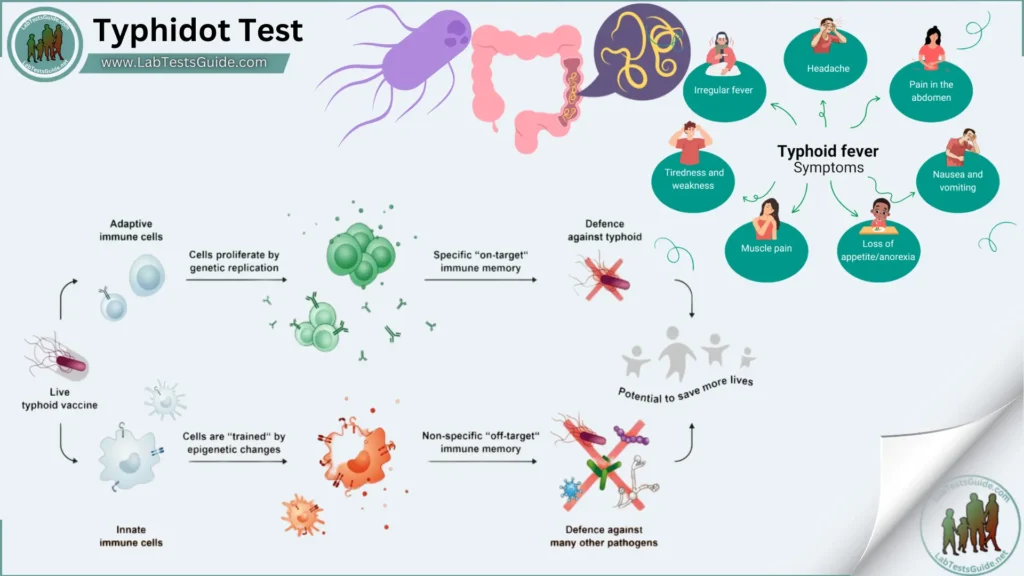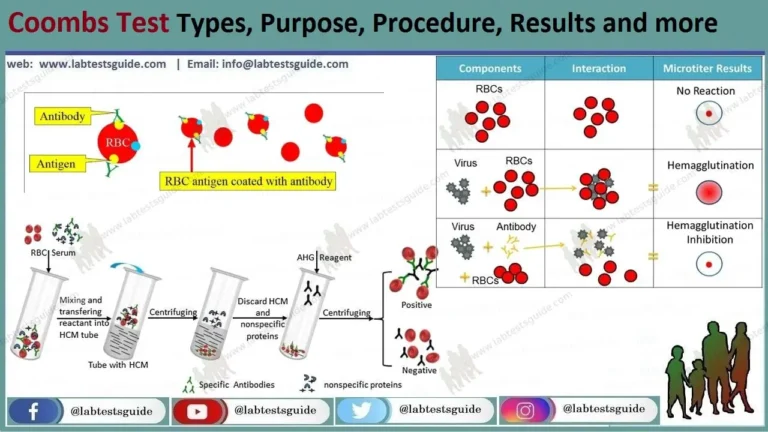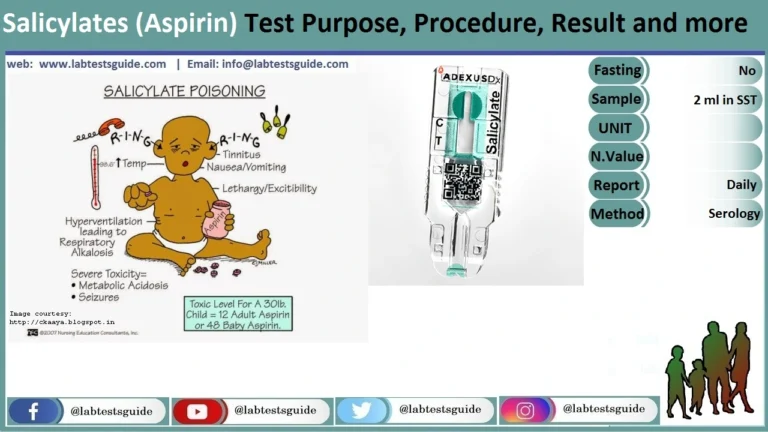Typhidot is a rapid serological test for the diagnosis of typhoid fever. The Typhidot test is an ELISA dot kit that detects IgM and IgG antibodies against Salmonella typhi outer membrane protein (OMP). The typhidot test becomes positive within 2-3 days after infection and identifies the IgM and IgG antibodies separately. The test is based on the presence of specific IgM and IgG antibodies for a specific OMP.

Typhoid fever or enteric fever is an acute, life-threatening disease that causes fever transmitted by the ingestion of food or water that has been contaminated with the feces of a person infected with Salmonella typhi or S. paratyphi bacteria.
Related Content: Typhidot Fever, Widal Test, CBC, Blood Culture, Urine Culture, Stool Culture, Bone Marrow
Symptoms:
Signs and symptoms are likely to develop gradually .
Common Symptoms:
- High Fever
- Headache
- Abdominal Pain
- Constipation
- Diarrhea
Detailed Signs and Symptoms:
- Salmonella infection is more common in children less than 10 years of age.
- Prodromal stage: There is malaise, headache, cough, sore throat, abdominal pain, and constipation.
- Diarrhea is late symptoms and is usually in the third week of illness.
- Fever: It is constant and ascends in a stepwise pattern.
- 7 to 10 days: There is Paek and patients are sicker.
- Early diarrhea.
- Abdominal distension.
- Patients improve after 7 to 10 days.
- Untreated cases recover in about 4 weeks.
- Symptoms disappear with antibiotics within 3 to 4 days.
- Relapse may occur after 2 weeks.
- The gastroenteritis incubation period is 8 to 24 hours.
- There are nausea and vomiting.
- There is abdominal pain.
- There is diarrhea.
- There may be a fever.
- This is self-limiting disease and recovery is usually within a week.
Sauses of Typhidot:
- Contaminated food (including meat).
- Contaminated water supply.
- Washing fruit, vegetables and vessel can spread it, if contaminated water is used.
Diagnoses:
- CBC Test: Shows Low TLC (WBC).
- Blood culture, positive in the first week of infection in 80 % of the cases. But blood culture may reach 90 % of the cases and it decreases to 50% in the third week.
- Bone marrow culture if taken will be positive and may have a high yield of up to 90% sensitivity.
- Stool culture will be a positive but not reliable test. This will be positive within the first 7 days of infection.
- Widal test will be positive after 7 to 10 days of infection.
- Typhidot test claimed by the manufacturing companies that it will be positive after 2 to 3 days.
- Urine culture may be done and is positive in the case of enteric fever but is less sensitive.
Treatment:
- The drug of choice is the Ciprofloxacin.
- Chloramphenicol is also effective but this may have a serious side effect.
- Co-trimoxazole is also used and has less serious side effects like Chloramphenicol.
Prevention Of The Disease
- The Hygenic measure like:
- Clean water supply.
- Adequate disposal of the sewage material.
- Washing of the hands after the defecation. The best is to wash your hands with soap at least three times.
- Take care of food handling and processing.
- For the carriers, give them treatment and advise them to wash hands after the defection.
- Vaccination should be advised in the family where there is a history of enteric fever.
- Injectable vaccine.
Possible References Used






One Comment